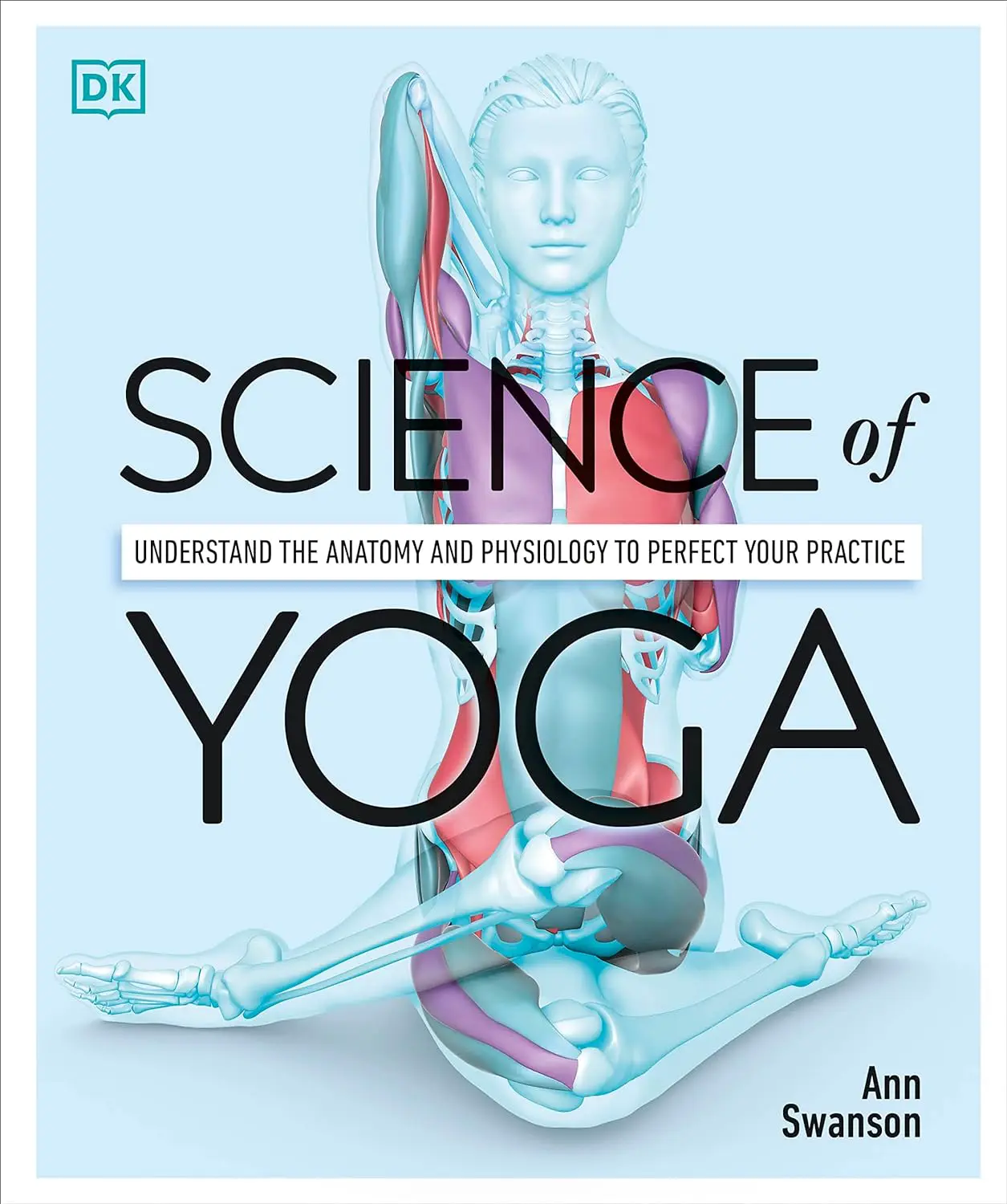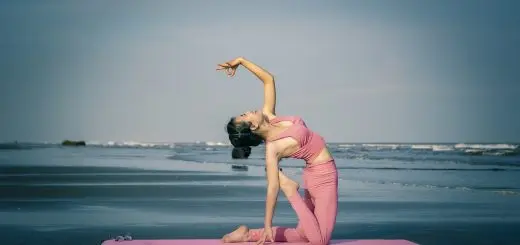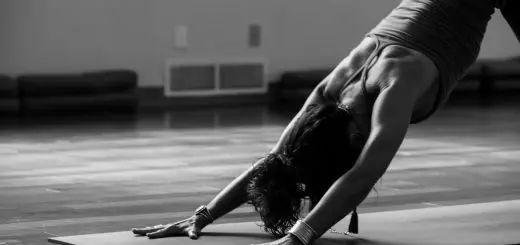Deep Dive: Yin Poses Explained in Detail

Looking for more amazing products? Check out our online store and explore our collection here! Happy shopping!
Before diving in, please note: This post is for informational purposes only. If you’d like to know more about how we approach topics, feel free to check out our friendly Disclaimer Page.
Hey there, amazing readers! 
We’re committed to delivering quality posts, and your support (even just sticking around despite the ads) means everything to us. So, bear with us, and thanks for helping us keep the good vibes rolling. Now, on to the fun stuff!
TRANSLATE BUTTON AT THE END OF THE ARTICLE
A Quick Overview
Yin yoga is a slow-paced style of yoga that focuses on holding passive poses for an extended period, typically ranging from 1 to 5 minutes.
Unlike more dynamic styles of yoga, yin yoga targets the connective tissues, such as ligaments, tendons, and fascia, rather than the muscles.
This practice is designed to improve flexibility, increase circulation, and cultivate a sense of deep relaxation and inner peace.
In this article, we will delve into the world of Yin yoga, specifically focusing on Yin poses and their benefits.
Introduction to Yin Yoga
Yin yoga is rooted in the Taoist concept of yin and yang, representing opposite and complementary energies.
In yoga, yin is associated with the passive, receptive, and cooling qualities, while yang is associated with the active, dynamic, and heating qualities.
Yin yoga aims to balance these energies by targeting the yin tissues through long-held poses that allow for deep stretching.
Benefits of Yin Yoga Poses
The practice of Yin poses offers a wide range of benefits, including increased flexibility, improved joint mobility, and enhanced circulation.
By holding poses for an extended period, yin yoga helps release tension in the body and calm the mind.
Additionally, Yin poses can stimulate the meridian lines in the body, promoting the flow of energy and enhancing overall well-being.
Understanding Yin Energy
In Chinese medicine, yin energy is associated with the feminine, passive, and introspective qualities.
Yin yoga encourages practitioners to embrace stillness, surrender, and acceptance.
By cultivating yin energy through the practice of Yin poses, individuals can tap into a deeper sense of self-awareness and inner peace.
How to Practice Yin Poses
To practice Yin poses effectively, it is important to find a quiet and comfortable space where you can relax and focus on your breath.
Start by warming up the body with gentle movements or a few rounds of Sun Salutations.
Then, choose a Yin pose that targets a specific area of the body and hold it for 1 to 5 minutes, breathing deeply and surrendering to the stretch.
Exploring Various Yin Poses
There are a wide variety of Yin poses that target different areas of the body and provide unique benefits.
Some common Yin poses include Dragon pose (targeting the hips and groins), Butterfly pose (targeting the inner thighs and groins), and Sphinx pose (targeting the lower back and spine).
Each pose offers a different opportunity for stretching and releasing tension in specific areas.
Detailed Instructions for Yin Poses
When practicing Yin poses, it is important to listen to your body and honor your limits.
Start by finding a comfortable position in the pose and focus on your breath.
Relax the muscles and allow gravity to gently pull you deeper into the stretch.
If you experience any pain or discomfort, gently come out of the pose and modify as needed.
Importance of Breath in Yin Yoga
Breath awareness is a key component of Yin yoga, as deep, conscious breathing can help relax the body and calm the mind.
By focusing on the breath during Yin poses, practitioners can cultivate a sense of mindfulness and presence in the moment.
Remember to inhale and exhale slowly and steadily throughout the practice.
Modifying Yin Poses for Beginners
For beginners, it is important to approach Yin poses with patience and mindfulness.
Start by holding poses for a shorter duration, gradually increasing the time as you become more comfortable.
Use props such as blocks, bolsters, or blankets to support the body and make the poses more accessible.
Listen to your body and honor your own unique needs and limitations.
Common Mistakes in Yin Poses
One common mistake in Yin poses is pushing too hard or trying to force the body into a deep stretch.
It is important to approach Yin yoga with a sense of gentleness and surrender, allowing the body to gradually open up over time.
Avoid bouncing or jerking in the poses, as this can lead to injury.
Instead, focus on finding a comfortable edge and breathing into the stretch.
Yin Poses for Relaxation and Stress Relief
Yin poses are highly effective for promoting relaxation and relieving stress, as they encourage the body to release tension and calm the nervous system.
Poses such as Child’s pose, Corpse pose, and Sleeping Swan pose can help soothe the mind and body, promoting deep relaxation and a sense of inner peace.
Incorporating Yin poses into your daily routine can help reduce stress and promote overall well-being.
Yin Poses for Flexibility and Mobility
In addition to relaxation, Yin poses are also beneficial for increasing flexibility and improving joint mobility.
By holding poses for an extended period, individuals can gently stretch and release tension in the connective tissues, promoting greater range of motion and flexibility.
Poses such as Butterfly pose, Happy Baby pose, and Reclining Twist pose can help enhance flexibility in the hips, spine, and shoulders.
Incorporating Yin Yoga into Your Routine
To incorporate Yin yoga into your routine, consider setting aside dedicated time each week for a Yin practice.
Start with a few simple poses and gradually build up to longer holds and more challenging poses as you become more experienced.
Remember to listen to your body, breathe deeply, and approach the practice with a sense of openness and receptivity.
Yin yoga can be a wonderful complement to more dynamic styles of yoga and can help balance and harmonize the body and mind.
Conclusion
Yin yoga offers a unique and valuable practice for individuals looking to cultivate mindfulness, increase flexibility, and promote relaxation.
By exploring various Yin poses and incorporating them into your routine, you can experience the profound benefits of this gentle and meditative practice.
Remember to approach Yin poses with patience, awareness, and a sense of surrender, allowing the practice to unfold organically and nurturing a deeper connection to yourself and the present moment.
Start your Yin yoga journey today and discover the transformative power of stillness and inner peace.

The Enlightenment Journey is a remarkable collection of writings authored by a distinguished group of experts in the fields of spirituality, new age, and esoteric knowledge.
This anthology features a diverse assembly of well-experienced authors who bring their profound insights and credible perspectives to the forefront.
Each contributor possesses a wealth of knowledge and wisdom, making them authorities in their respective domains.
Together, they offer readers a transformative journey into the realms of spiritual growth, self-discovery, and esoteric enlightenment.
The Enlightenment Journey is a testament to the collective expertise of these luminaries, providing readers with a rich tapestry of ideas and information to illuminate their spiritual path.
Our Diverse Expertise
While our primary focus is on spirituality and esotericism, we are equally passionate about exploring a wide range of other topics and niches 

To ensure we provide the most accurate and valuable insights, we collaborate with trusted experts in their respective domains 
Our blog originally focused on spirituality and metaphysics, but we’ve since expanded to cover a wide range of niches. Don’t worry—we continue to publish a lot of articles on spirituality! Frequently visit our blog to explore our diverse content and stay tuned for more insightful reads.
Hey there, amazing reader! 
Check out our store here and take a peek at some of our featured products below! Thanks for being awesome!











